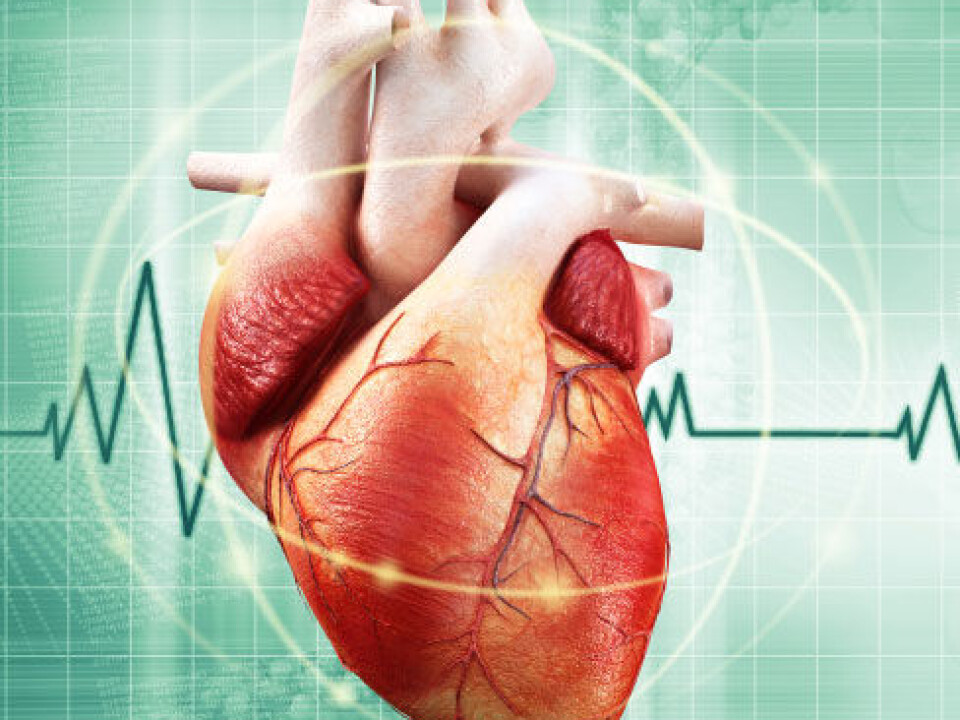Heartbreak Hotel on Blues Avenue
People with clear symptoms of depression run a 40 percent higher risk of heart failure. “The more depressed you feel, the more you are at risk,” says the Norwegian intensive care nurse who led a major study.
This link between depression and heart failure was reported in an eleven-year study of nearly 63,000 Norwegian men and women in North-Trøndelag County.
In the years 1995-2006, nearly 1,500 of them developed heart failure, a condition in which the heart pumps blood insufficiently to serve the needs of the body.
The study shows that people with what is designated as moderate to serious signs of depression run a 40 percent higher risk of heart failure. The elevated risk for people with milder symptoms of such “blues” was only five percent.
The researchers could not determine how long people need to suffer moderate or serious symptoms of depression before their risk of heart failure increases so much.

The key factor appears to be the aggregate impact of symptoms – how depressed a person is.
Presented at EuroHeartCare 2014
The new Norwegian study has yet to be published for peer review, but the findings were presented on 4 April at a conference EuroHeartCare 2014 in Stavanger, Norway. EuroHeartCare is the official annual meeting of the Council on Cardiovascular Nursing and Allied Professions (CCNAP) of the European Society of Cardiology (ESC).
The lead author of the study, Lise Tuset Gustad, warns:
“We see that the stronger the symptoms of depression, the higher the risk of future heart failure. Here we’re talking about a so-called dose response effect.”

“Clear symptoms of depression can typically be that a person loses his or her wish for, and enjoyment of, common interests in daily life, or displays no care about personal appearance,” says Gustad.
Gustad is an intensive care nurse at Levanger Hospital as well as a researcher and part-time educator at the Norwegian University of Science and Technology (NTNU) in Trondheim.
Check for depression
Gustad says in a statement issued by the ESC that hospital patients should be tested for depression.
“Patients at all hospitals should be screened for depression to help them recover from existing illnesses, avoid developing new ones and lead a more enjoyable life,” says Gustad.
She recommends people with depression symptoms to contact a physician for advice on how the disorder should be tackled and treated.
“Treatment of depression should start as early as possible, as it can have such serious consequences as time passes,” says Gustad.
Links to lifestyle
The Norwegian researcher thinks the mechanism behind the link shown by the study is associated with the way depressed people live.
“Depressed behaviour is often unhealthy in a number of ways. A lifestyle involving unhealthy diet, smoking and inactivity can cause inflammation conditions in the body which for some will lead to heart failure.”
But the study adjusted for such factors as obesity and smoking, showing that depression itself poses a risk.
“There are also indications that depression induces unfavourable stress reactions in the brain, a so-called neurohormonal activation, which in turn can trigger irregular heartbeat and atherosclerosis, raising risks of blood clots,” says Gustad.
Similar findings on heart attacks
The study is part of Gustad’s PhD work, which looks into links between anxiety, depression and cardiovascular disease.
Gustad and colleagues have previously shown that the risk of heart attacks rises with repeated episodes of anxiety and depression symptoms.
But the risk was then found to be at a peak only during the first five years of depression.
In the new study, however, shows that people with clear symptoms of depression run the same elevated risk (40 percent higher) during the entire 11-year survey period.
Wide variations in outcome
When heart failure occurs the heart muscle becomes less effective. It can no longer supply the body with sufficient amounts of oxygen-rich blood.
This makes the patient feel listless and tired, an exhaustion which can for instance cause breathlessness when ascending stairs.
But heart failure can also become so severe that a person can get short of breath even when sitting still.
Many patients can now live a long time with heart failure, but the outcome varies greatly on an individual basis.
Some people manage to exercise and regain their strength and functionality, while others become severely reduced, or die.
-------------
Read the Norwegian version of this article at forskning.no
Translated by: Glenn Ostling








